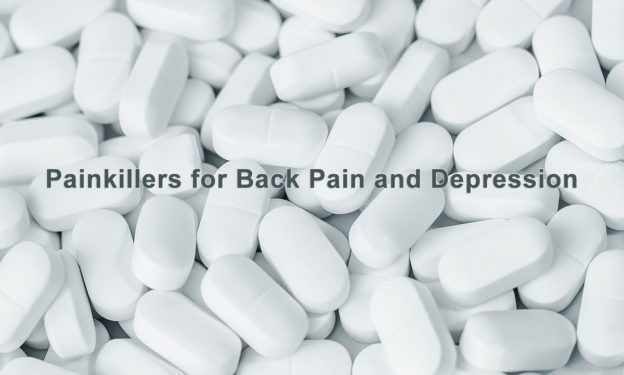Painkillers based on opiates are sometimes prescribed to eliminate pain. Chronic back pain and depression or anxiety often occur as coexisting conditions in patients. Individuals in constant pain often develop depression or anxiety over their inability to alleviate it. Similarly, suffering from depression or anxiety often exacerbates pain in many individuals. Patients suffering from chronic back pain and emotional or psychiatric disorders are sometimes prescribed opiate-based painkillers to eliminate their pain. However, a study published in spine-health shows that opioid painkillers may not be the best treatment option.
The study reveals that these individuals don’t achieve the same pain relief level from narcotics-based painkillers as other patients. Consequently, they are at a much higher risk of abusing painkillers in an attempt to alleviate feelings of pain. These individuals often “doctor shop” by attempting to obtain their painkiller prescriptions from multiple physicians. Some even begin taking marijuana, cocaine, or other illegal drugs along with their painkillers.
The Study
Back Pain, Depression and Opioid Painkillers
The study’s findings were obtained by following 55 research participants for six months suffering from chronic back pain and diagnosed depression or anxiety. The levels of depression or anxiety ranged from mild to severe. During the course of the study, each patient received randomly assigned medication to relieve their back pain. The remedy consisted of either morphine, oxycodone (Oxycontin), or a placebo. Each participant must report their drug dosage and their pain levels daily.
Depression Seriously Impacts Effectiveness of Painkillers
The study results revealed that those suffering from depression or anxiety and back pain felt far less relief from painkillers than those who did not suffer from depression or anxiety. Those with anxiety reported a 21 percent improvement in pain, while those with less depression reported a 39 percent reduction in feelings of discomfort.
For over 26 years, people from all over the world have chosen Waismann Method as their opioid detox provider.
We know the challenges you face and the importance of creating a unique and personal experience for you right from the start.Call for Detox Options 1-800-423-2482
Additionally, those with depression also suffered from more side effects from the painkillers, including constipation, nausea, fatigue, and confusion. Alarmingly, patients with the highest levels of depression also showed a 39 percent greater risk of abusing the painkiller medication than those with lower levels of anxiety or depression.
Symptoms of depression include at least 5 of the following:
- Feelings of depression, sadness, hopelessness, low, or irritability
- Diminished appetite with significant weight loss or increased. appetite with weight gain
- Hypersomnia or hyposomnia
- Restlessness or sluggishness
- Loss of interest in pleasurable activities
- Decreased sex drive
- Feeling of worthlessness
- Difficulties with concentration or memory
- Thoughts of death, committing suicide, or wishing to be dead
Stopping Abuse of Painkillers Before it Starts
Preventing prescription painkillers’ abuse requires that physicians assess patients for anxiety and depression before prescribing a narcotics-based painkiller. Painkillers must not be viewed as a long-term option, preferably as a short-term solution if used at all. Individuals who suffer from these conditions should not immediately be treated with narcotics painkillers. Instead, they should be prescribed a non-narcotics painkiller, or the pain should be treated through physical therapy and rehabilitation.
Studies show that treating depression and anxiety through various physical rehabilitation and counseling methods also reduces pain feelings. A team approach is also vital, where physicians partner with psychiatrists and psychologists to perform a thorough assessment of a patient before dispensing painkillers.
Conclusion
It is wise for individuals suffering from anxiety or depression to review their options before choosing opioid painkillers for back pain. Chronic back pain can reduce an individual’s ability to engage in various ventures, including work, recreational activities, and interaction with loved ones. This circumstance often leads to a downward spiral, not just physical but also emotional. Ultimately, the individual feels controlled by the pain, leading to significant depression. A depressed person has a much harder time improving a negative situation even when possible solutions are available.
Sources:
- SPINE-health: Depression and Chronic Back Pain
- MedlinePlus: Back Pain
- USNews: When Chronic Pain Leads to Depression in Kids
- PSYCOM: Depression Definition and DSM-5 Diagnostic Criteria






